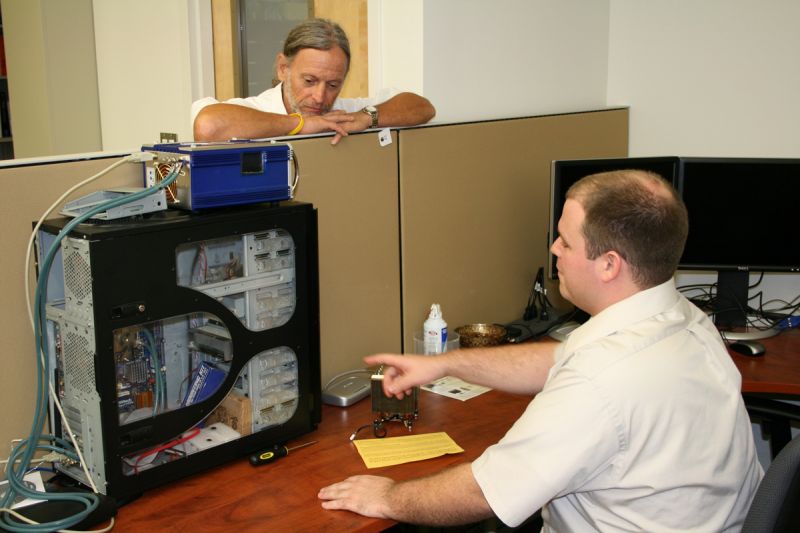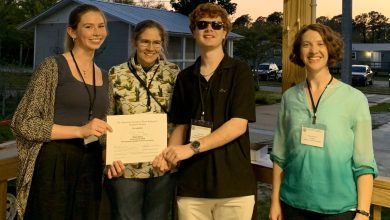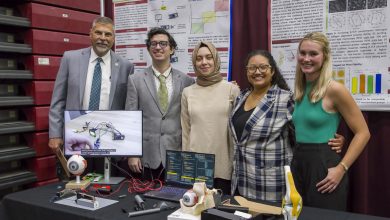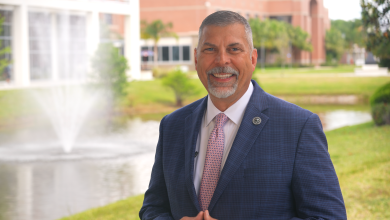Chips in the Freezer: Quantum-Style!
Last fall, I attended a Florida Tech public lecture, given by Scott Tilley, Ph.D., from the computer sciences department. The presentation was called Quantum Computing and it showed how “the need for speed is what drives computer science,” and hence the goal of quantum computers, rather than digital ones.
Tilley began by comparing a Sinclair ZX-81 computer to a Macbook (pictured below). They look drastically different, and one is a lot faster than the other, but they both still use the same method — digital computing using binary digits. The fastest computer we have is called a supercomputer, having 3,120,000 computing cores and using about 17,000 kW/hr. But in order to get anything much faster, scientists are looking into a completely different method of computing altogether.

Source: Old Computers

- MacBook
Source: uk2.net
A quantum computer is exponentially faster than a digital computer (theoretically), which is why the idea is so appealing. While a binary computer computes by checking if the bit is switched on or off (represented by “0” or “1”), a qubit (“quantum bit”) can take advantage of the quantum property called superposition, which describes a phenomenon that can hold all of its states simultaneously. So a qubit, rather than being simply on or off, can be on, off or both at the same time. This allows a quantum computer to theoretically be able to see all possible solutions at once and come to the answer much faster, unlike a binary system, which has to check every combination of possible values in order to get to the answer. There is also a lot of interest in trying to utilize another quantum property called entanglement, which suggests subatomic particles share properties even when they are separated by a large distance (so if one particle is changed over “here”, particles over “there” would be changed as a result).
It all sounds a bit fantastic, though, right? And we can’t deny that binary computing has been innovative itself. Next time you use your credit card to buy something online, think of the RSA public key encryption that uses extremely large prime numbers for encryption so your card number stays secure (click here for more details on credit card encryption). That’s all thanks to binary computing.
But quantum computers are not fantastic! Twelve years ago, the first quantum computer was built and successfully factored the number fifteen. Since then, the D-Wave quantum computing company has developed the first commercially sold quantum computers, first D-Wave 1 and then D-Wave 2. The D-Wave 2 has 512 qubits (called the Vesuvius chip) and many who have experimented with it agree it can solve specific problems up to 3600 times faster than a digital computer.

Source: kurzwilai.net
Many problems still exist in the quantum computing world, however. Unlike digital computers that can be used for many, many things, the quantum computers developed so far can only solve the certain problem they were designed to solve. There is also the problem that comes with relying on superposition — all states collapse if anything interferes. To try and prevent this, a giant cooling mechanism has been developed to encase the Vesuvius chip, pictured below. The chip is tiny, but you’d never believe it seeing the freezer that allows it to stay around 0.002 Kelvin above absolute zero!

Source: GizMag

Source: imasters.com
So the only thing to do right now is to wait and see what else the computer science world will develop next. Recently NASA, Google, the Universities Space Research Association (USRA) and a few universities teamed up with D-Wave to try and use the Vesuvius chip in developing artificial intelligence. If they can get it to work, the claim is they will have intelligence smarter than humans in about fifteen years or so. We’ll see about that one, but whether that is true or not, technology is on the move, and hopefully we will see some incredible developments in the next 20 years or so!
Learn more about Professor Tilley on his website.






